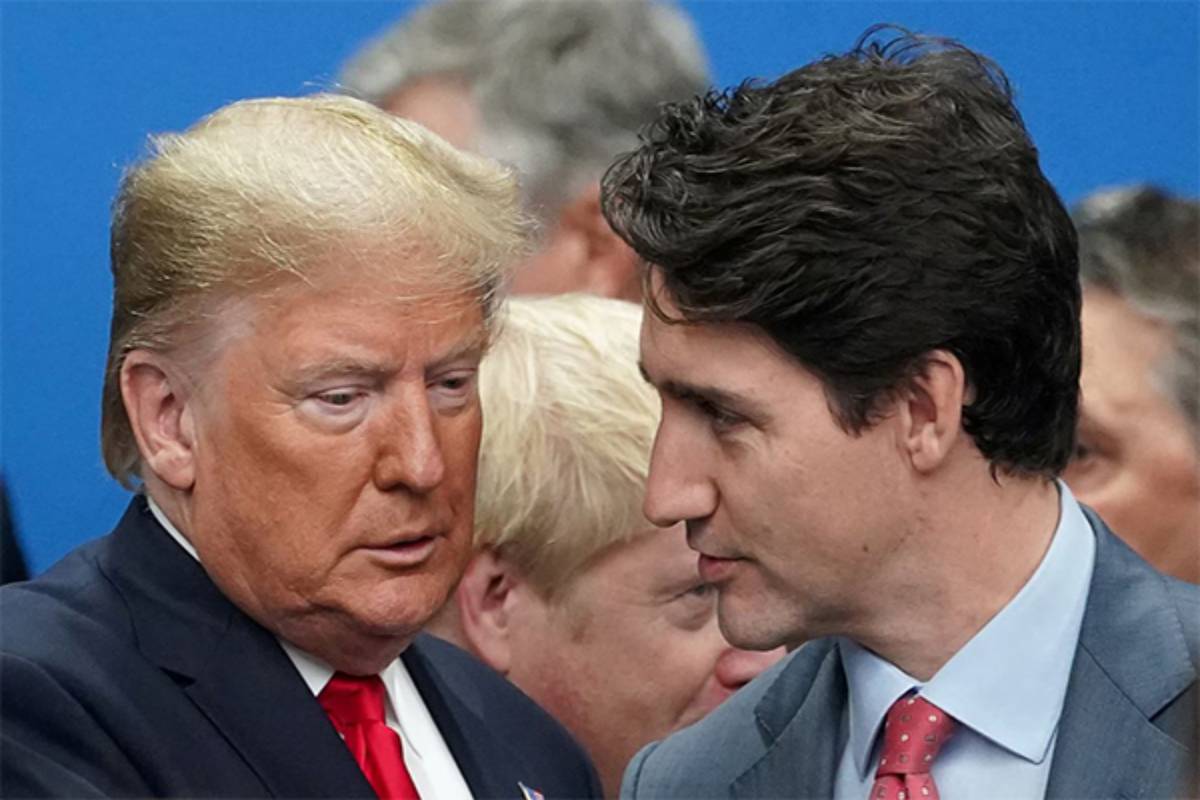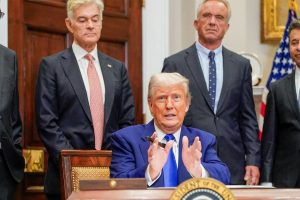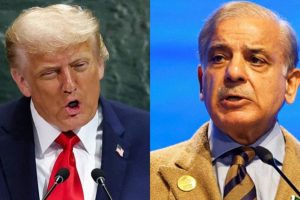As the US-Canada tariff war escalates, US President Donald Trump has reportedly expressed his desire to revisit the longstanding border demarcation treaty between the two countries. According to a New York Times report citing four anonymous sources with firsthand knowledge of the discussions, Trump conveyed his dissatisfaction with the 1908 border agreement in a February call with Canadian Prime Minister Justin Trudeau.
During the conversation, Trump reportedly voiced his disapproval of their shared water agreements, suggesting the need to renegotiate the management of lakes and rivers between the nations. The discussion came at a time when tensions were already high over US tariffs on Canadian exports and Trump’s grievances over Canada’s protected dairy sector, the challenges faced by American banks in Canada, and consumption taxes Trump claims unfairly inflate the cost of American goods.
In a statement largely overlooked at the time, Trudeau responded to Trump’s stance on tariffs, calling them “completely bogus, completely unjustified, completely false.” He went further, alleging that Trump’s real intent was to weaken the Canadian economy, potentially paving the way for annexation.
Trump’s frustration with existing agreements reportedly extends beyond economic issues. The report suggests that he has contemplated withdrawing Canada from the ‘Five Eyes’ intelligence-sharing alliance, which also includes the United Kingdom, Australia, and New Zealand. Additionally, Trump has reportedly expressed interest in dismantling treaties governing the management of the Great Lakes — Lakes Superior, Huron, Erie, and Ontario — and reconsidering military cooperation through the North American Aerospace Defense Command (NORAD).
Despite these tensions, some signs of restraint remain. US Secretary of State Marco Rubio has dismissed suggestions of terminating military cooperation with Canada, offering a glimmer of stability amid the otherwise fractious relationship.
However, Canadian political leaders and the public remain deeply unsettled. Officials fear that the Trump administration’s threats signal a fundamental shift in US-Canada relations, marking what they see as a troubling new normal. As the situation unfolds, concerns over the future of diplomatic, economic, and military cooperation between the two neighbors continue to mount.





